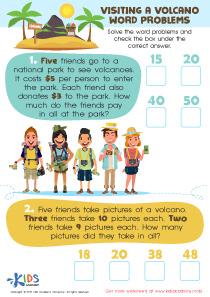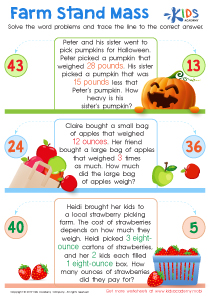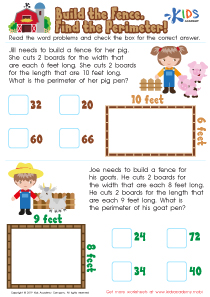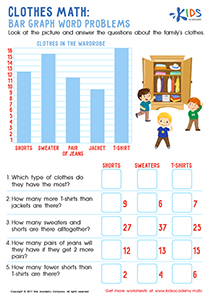Subtraction practice Normal Addition and Subtraction Word Problems Worksheets for Ages 3-7
3 filtered results
-
From - To
Discover engaging subtraction practice worksheets designed for children aged 3-7! Our addition and subtraction word problems encourage young learners to develop essential math skills in a fun and interactive way. These worksheets are tailored to help kids grasp fundamental subtraction concepts while enhancing problem-solving abilities. Each worksheet features age-appropriate scenarios that capture children's imaginations, making learning enjoyable. Perfect for parents and educators, these resources support early math education, allowing children to build confidence as they tackle subtraction challenges. Download our printable worksheets today and watch your child's mathematical proficiency grow with practice and enthusiasm!
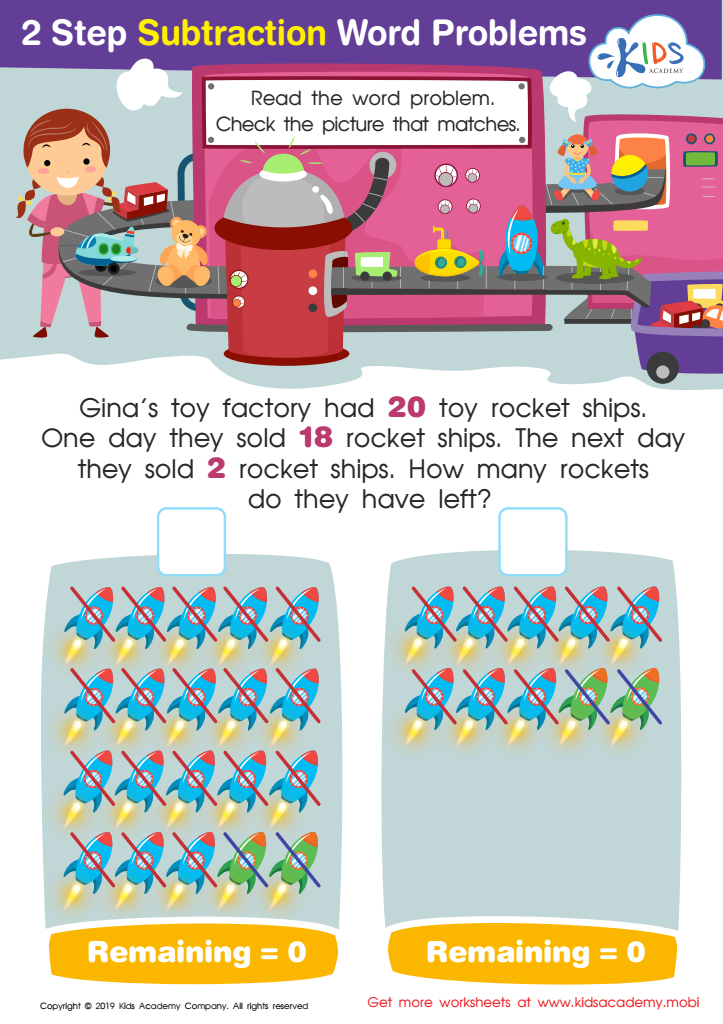

Step Subtraction Word Problems Worksheet
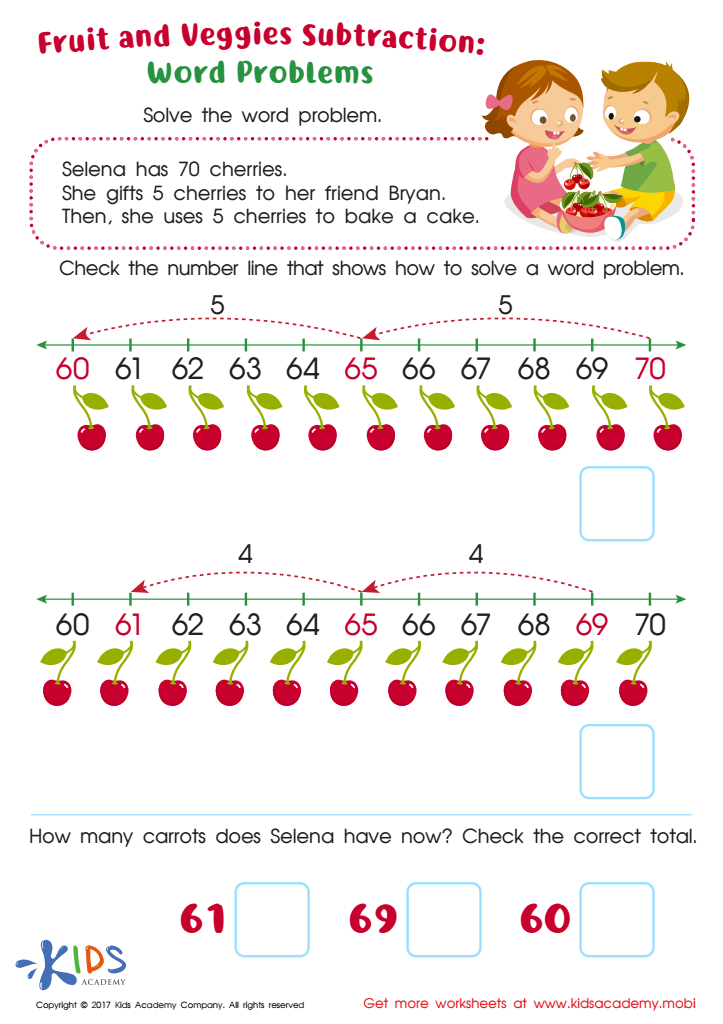

Subtraction Word Problems Free Printable
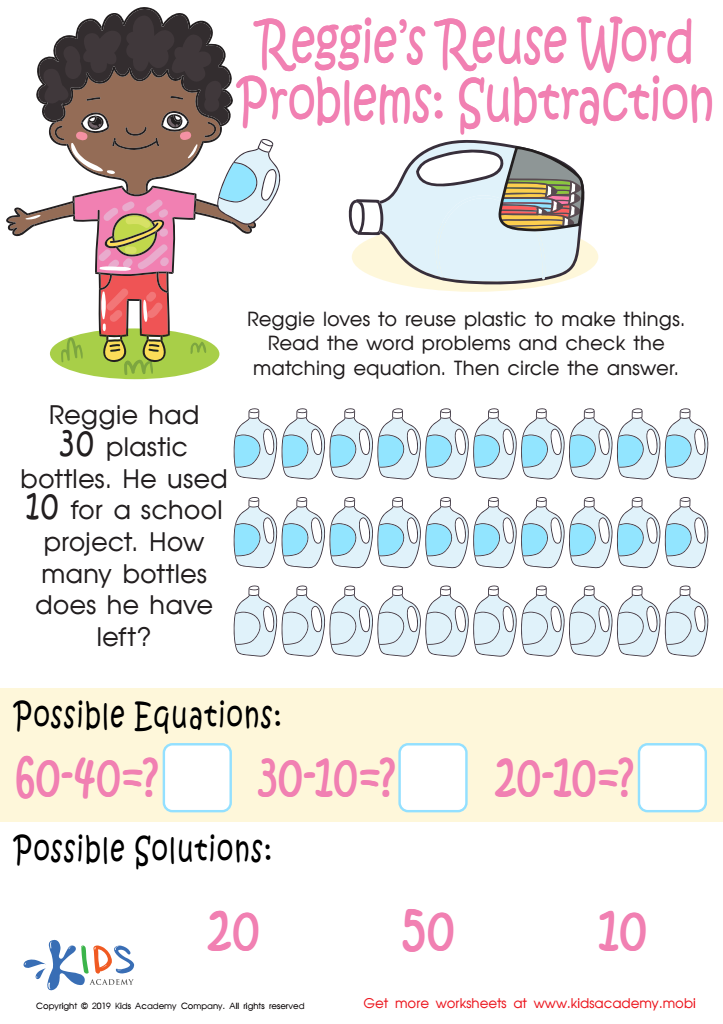

Reggie's Reuse Word Problems: Subtraction Worksheet
Subtraction practice and word problems for ages 3-7 are vital in early childhood education for several reasons. First, they build foundational math skills. Young children grasp the concept of subtraction through practical, real-world scenarios. Engaging in subtractive activities helps them understand how quantities can decrease and its implications in everyday life, promoting conceptual learning rather than rote memorization.
Practicing normal addition and subtraction word problems develops critical thinking and problem-solving abilities. When children are presented with word problems, they learn to analyze situations, identify key information, and find solutions. This fosters essential cognitive skills, encouraging them to think logically and confidently tackle challenges.
Moreover, subtraction practice encourages number sense and mathematical fluency. As children regularly apply these skills, they become more comfortable with numbers, facilitating smoother transitions to more advanced mathematical concepts in later years. It's also important for parents and teachers to recognize that nurturing a positive attitude towards math during these formative years lays the groundwork for lifelong learning and curiosity.
Overall, interaction with subtraction practice and word problems cultivates not only mathematical skills but also a sense of accomplishment and confidence in young learners, positively influencing their educational journey.
 Assign to My Students
Assign to My Students











